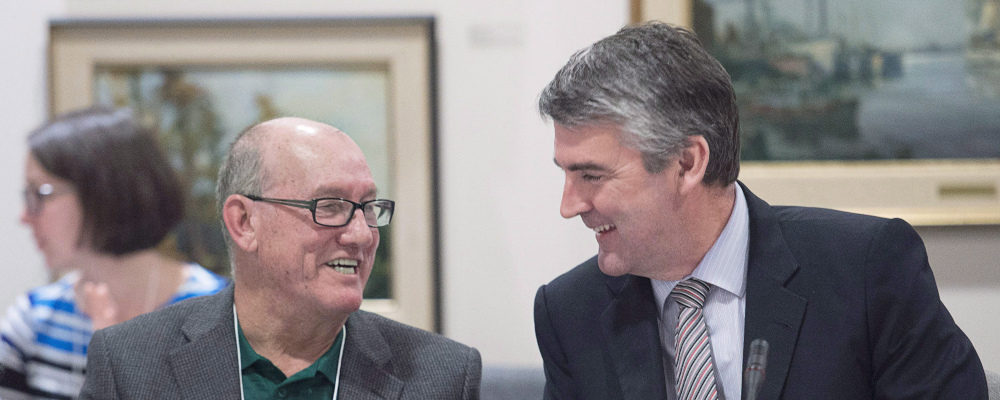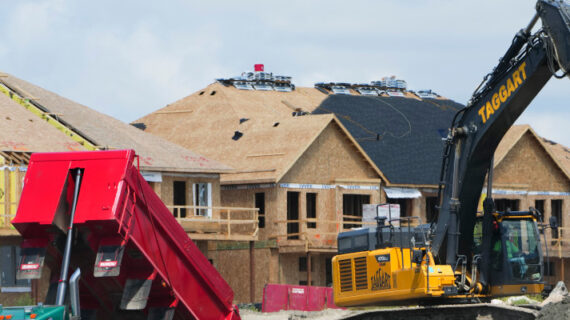The Hub launched with a core mission of getting Canadians thinking about the future. We’ve been stuck in the doldrums, pessimistic and polarized, for too long. To lay out a roadmap for the next 30 years of Canadian life, we asked our contributors to pinpoint the most consequential issue, idea or technology for the country in 2050. This series of essays by leading thinkers will illuminate Canada’s next frontier.
The Indigenous economy is expected to triple in size over the next five years. With over 60,000 Indigenous businesses across Canada, Indigenous entrepreneurs are growing businesses at a rate of five times the national average, and many — if not most — Indigenous communities are engaged in resource development either by way of equity partnership or other types of agreements.
Indigenous peoples contribute $32 billion annually to the Canadian economy, and by 2025 this is expected to reach $100 billion.
I come from a long line of entrepreneurs from Dokis First Nation, a small yet very mighty Ojibwe community located in northeastern Ontario. (In the late 1800s, our fur traders almost put The Hudson’s Bay Company out of business!)
Like so many other Indigenous communities, Dokis leadership has long pushed through and worked around the Indian Act to prioritize our economy. That resilient, focused, entrepreneurial spirit — passed down from generation to generation — has allowed so many of us to plow through adversity and earn many academic, professional, and personal achievements. And, a strong social fabric.
MORE SIGNAL. LESS NOISE. THE HUB NEWSLETTER.
Indigenous peoples are by definition resilient and persevering. Long before the point of contact, Indigenous entrepreneurs worked through the harsh and long winter seasons and maintained trade networks across the vast terrain of these lands, shaping the economic foundation of what is now known as Canada. Following contact, Indigenous peoples resisted the pervasive implementation of various policies and later, the Indian Act, that worked to cancel Indigenous cultures, traditions, languages, laws, governance systems, economies, and to “get rid of the Indian problem” through its residential school policy.
Recently, Canada once again came face-to-face with itself. The awful discovery by the Tk’emlups te Secwempec First Nation of the remains of 215 children at the site of the Kamloops Indian Residential School pushed to the forefront of Canadian discourse the lethal impacts of the Indian Act, reminding us again of the intergenerational damage of the residential school system.
And while Indigenous peoples continue the work to heal, we continue to trust that the path forward is one that moves us towards prosperity through full economic participation and self-determination.
Beyond cutting to the core of Indigenous identity and families, the Indian Act choked Indigenous economies. This “legislative straight jacket” required citizens to obtain a “permit to sell” in order to engage in business and trade; it removed the right of First Nations to govern their own citizens, lands, resources; it limited their mobility by instituting a pass system that required citizens to obtain a permission slip from the federal Indian Agent to leave the boundaries of the reserve, even in order to conduct what would be considered to be regular day-to-day activities like purchasing goods and personal supplies, conducting business and visiting their children at residential schools.
Although so often strangled by red tape, resilience and perseverance have been guiding forces throughout the last 150-plus years. Fuelled by a strong sense of identity rooted in tradition, culture, language and industriousness, Indigenous peoples continued to press forward toward prosperity in the face of these limitations — each generation building on the strength of those that came before.
Through it all, and in spite of these challenges, Indigenous peoples have succeeded in creating opportunities with private-sector players who were willing to partner respectfully, resulting in that $32 billion annual contribution to the Canadian economy. Impressive as it is, that amount does not account for the sheer determination needed to overcome nearly insurmountable barriers — restrictive legislation, disease, poverty and racism — on the way to that level of achievement.
Imagine what could have been achieved if the federal policy framework was premised on empowering Indigenous peoples.
The entrepreneurship of Indigenous peoples is perhaps our country’s biggest untapped economic opportunity. Consider, for example, the Mi’kmaq acquisition of Clearwater Seafoods.
Over the course of weeks in the fall of 2020, Canadians watched events unfold in the lobster trade on the shores of the Atlantic, bracing themselves for yet another Indigenous-Crown relations quagmire that had been downloaded by the feds onto frontline police services for management and resolution. Tensions escalated to the point where Mi’kmaq traps were destroyed and their fishery facility was set on fire. The situation was reminiscent of what is now known as the Marshall fisheries case, and many were mentally preparing for months of ground-level tensions and years in court.
All of that came to an end on November 9, 2020, when Chief Terry Paul of Membertou First Nation announced that a coalition of seven Mi’kmaq communities had entered into a deal with Premium Brands Holdings Corporation to acquire a half-ownership stake in Clearwater Seafoods and 100 percent of all Canadian Clearwater licences.
Canadians across the country were surprised. Critics covered the story with a mix of shock and respect that an Indigenous rights–based point of tension had been resolved by a precedent-setting business move.
I believe Canadians were surprised because they weren’t paying attention.
The entrepreneurship of Indigenous peoples is perhaps our country’s biggest untapped economic opportunity.
Many Canadians hold assumptions about Indigenous entrepreneurship that are not now and have never been accurate. As noted above, the vast majority of Indigenous communities are already engaged in resource development. In fact, Indigenous-owned businesses are 40 times more likely to be involved in the mining and oil and gas sectors than the average Canadian business. Indigenous communities and businesses are open for business, as long as that business is handled respectfully and equitably.
Understanding that — and understanding the unique definition of “success” held in Indigenous communities — is vital for a country looking to build back better in the wake of the pandemic. Success for Indigenous communities is centred on collective assets, not individual profit. Communities enter the broader economy in a significant way — a way that is anchored in and informed by their own laws, governance systems, cultures, traditions and people.
Since time immemorial, we have seen Indigenous leaders rise to the occasion again and again. They have been driving the best deal, every step of the way, in pursuit of business dealings that respect our seat at the boardroom table. And they continue to do so today.
Ecosystems evolve over generations. Indigenous leaders are invested for the long term in creating opportunities for their citizens to learn, grow and develop. They recognize that investments need to be made in education and training so that the next generations are poised to compete for employment and other business opportunities. There is also, however, a recognition that these investments will not bear fruit overnight and that the stages of readiness will vary across communities.
Chief Terry Paul and leadership from neighbouring Mi’kmaq communities have spent the past 30-plus years focused on community growth through economic development and education. Like him, Indigenous leaders across the country have been pursuing partnerships and making dedicated investments of time and resources into building their own economic ecosystems, even knowing that the impacts may not be seen in the immediate future.
Business alone will not get us through. When approaching Indigenous communities as potential partners, paying lip service and having polite yet empty conversations won’t get you very far.
As we seek to enter the next frontier, Canada will only succeed if it seeks to incorporate human-centric elements into its ambitious economic plan. Pandemic restrictions have not only created financial deficits, they have also created emotional, mental, physical and spiritual deficits. Putting people first and investing in building authentic relationships has never been more important.
Canada can learn from and draw on the proven strength, resilience, and persistence of Indigenous peoples to inform its economic path forward. As the country looks for new approaches to determining “value” in light of climate change, Canadian leaders should consider the Indigenous business approach — an approach linked to community, social and environmental interests that are grounded in Indigenous knowledge and informed by perspectives of interconnectedness that already illustrate this wisdom and potential of this path. There exists now an opportunity for mutually beneficial economic recovery and growth.
As the country recognizes another anniversary of the Truth and Reconciliation Commission’s release of its Calls to Action, Canadian leaders should consider engaging with Indigenous entrepreneurs as one way to demonstrate their commitment to reconciliation. The opportunity is theirs for the taking.




